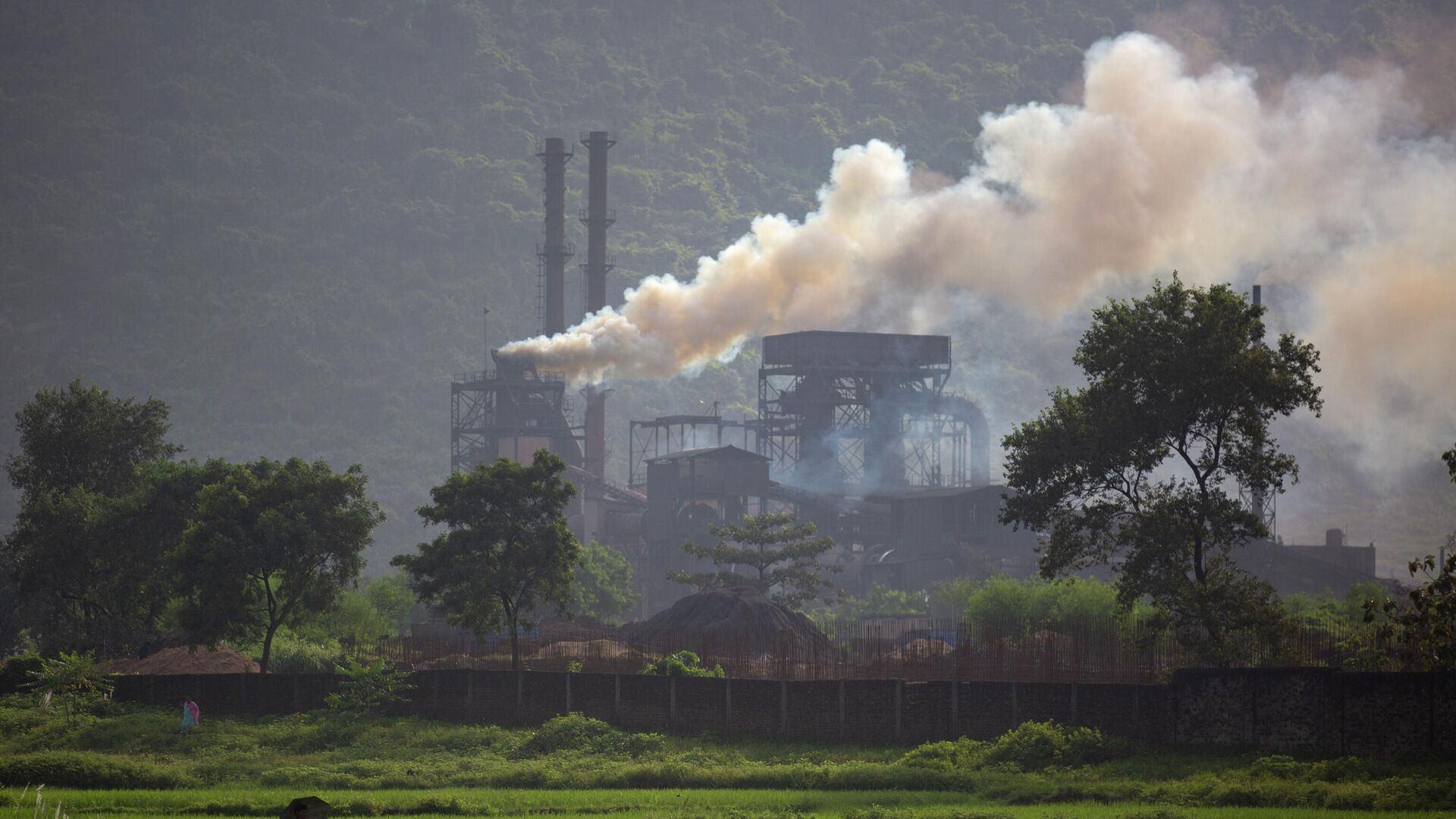https://sputnikglobe.com/20221109/no-transition-in-foreseeable-future-india-says-coal-will-dominate-its-energy-mix-beyond-2040-1103941397.html
'No Transition in Foreseeable Future': India Says Coal Will Dominate Its Energy Mix Beyond 2040
'No Transition in Foreseeable Future': India Says Coal Will Dominate Its Energy Mix Beyond 2040
Sputnik International
At present, India is the world’s second biggest producer and consumer of coal, with demand expected to top a billion tonnes in 2022-23. New Delhi says that... 09.11.2022, Sputnik International
2022-11-09T13:35+0000
2022-11-09T13:35+0000
2022-11-09T13:35+0000
india
coal
cop27 in egypt
paris climate deal
global warming
https://cdn1.img.sputnikglobe.com/img/07e6/09/17/1101125641_0:29:3072:1757_1920x0_80_0_0_eab12d6919840fb63feeb2df44e30477.jpg
India’s coal minister Pralhad Joshi said on Wednesday that coal will continue to dominate its energy mix beyond 2040 as domestic demand for the black rock would continue to peak beyond 2040.Addressing parliamentarians at a meeting of a Parliamentary Consultative Committee, Joshi said that coal was of “primary importance” for the sustaining the growth momentum of the Indian economy due to its widespread use in critical industries such as steel, sponge iron, aluminum, cement and paper.Joshi noted that coal accounted for 51 percent of the country’s primary energy requirement and around 73 percent of the power generation.The minister said that the ongoing global push to transition away from fossil fuels such as coal and crude towards greener sources of energy has been overshadowed by the affordability of coal as a source of energy amid high energy prices.India is expected to be the fastest growing major economy this year, with the International Monetary Fund (IMF) projecting a Gross Domestic Product (GDP) growth of 6.8 percent.During the meeting, India’s coal secretary Amrit Lal Meena noted that the transition away from a carbon-intensive energy source like coal to low-carbon sources would only be possible if the end users and industries are compensated adequately.The remarks by India’s coal minister come as governments across the world discuss ways to transition away from fossil fuels at the ongoing Conference of the Parties of the United Nations Framework Convention on Climate Change (UNFCCC), or COP27 Summit in Egypt.The rich and developing countries agreed to limit global warming below 1.5 degree Celsius at the Paris Climate Conference, or COP21, in 2015. As part of the consensus, the rich countries committed to a sum of $100 billion a year to the low and middle income nations in order to speed the transition away from fossil fuels.However, the developing countries have complained that the rich nations haven’t come good on the climate finance commitments, which has hampered the energy transition.
Sputnik International
feedback@sputniknews.com
+74956456601
MIA „Rosiya Segodnya“
2022
News
en_EN
Sputnik International
feedback@sputniknews.com
+74956456601
MIA „Rosiya Segodnya“
Sputnik International
feedback@sputniknews.com
+74956456601
MIA „Rosiya Segodnya“
india, coal, cop27 in egypt, paris climate deal, global warming
india, coal, cop27 in egypt, paris climate deal, global warming
'No Transition in Foreseeable Future': India Says Coal Will Dominate Its Energy Mix Beyond 2040
At present, India is the world’s second biggest producer and consumer of coal, with demand expected to top a billion tonnes in 2022-23. New Delhi says that coal has become all the more important for sustaining its economic growth in view of high prices of oil and natural gas.
India’s coal minister Pralhad Joshi said on Wednesday that coal will continue to dominate its energy mix beyond 2040 as domestic demand for the black rock would continue to peak beyond 2040.
Addressing parliamentarians at a meeting of a Parliamentary Consultative Committee, Joshi said that coal was of “primary importance” for the
sustaining the growth momentum of the Indian economy due to its widespread use in critical industries such as steel, sponge iron, aluminum, cement and paper.
Joshi noted that coal accounted for 51 percent of the country’s primary energy requirement and around 73 percent of the power generation.
“Thus, no transition away from coal is happening in foreseeable future in India,” the minister said.
The minister said that the ongoing global push to transition away from fossil fuels such as coal and crude towards greener sources of energy has been overshadowed by the affordability of coal as a source of energy amid high energy prices.
India is expected to be the fastest growing major economy this year, with the International Monetary Fund (IMF) projecting a Gross Domestic Product (GDP) growth of 6.8 percent.
During the meeting, India’s coal secretary Amrit Lal Meena noted that the transition away from a carbon-intensive energy source like coal to low-carbon sources would only be possible if the end users and industries are compensated adequately.
The remarks by India’s coal minister come as governments across the world discuss ways to transition away from fossil fuels at the ongoing Conference of the Parties of the United Nations Framework Convention on Climate Change (UNFCCC), or
COP27 Summit in Egypt.
The rich and developing countries agreed to limit global warming below 1.5 degree Celsius at the Paris Climate Conference, or COP21, in 2015. As part of the consensus, the rich countries committed to a sum of $100 billion a year to the low and middle income nations in order to speed the transition away from fossil fuels.
However, the developing countries have complained that the rich nations haven’t come good on the climate finance commitments, which has hampered the energy transition.



